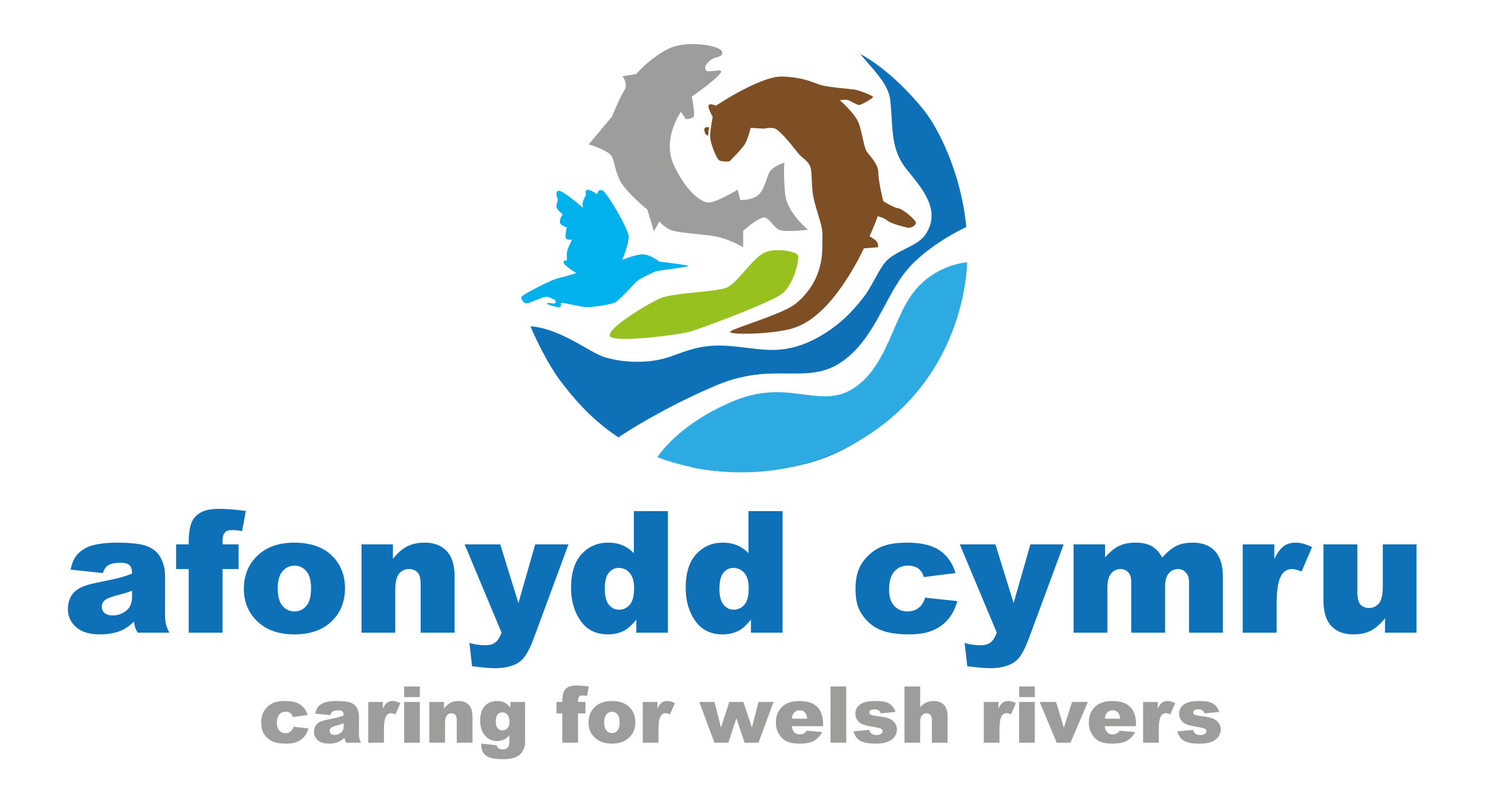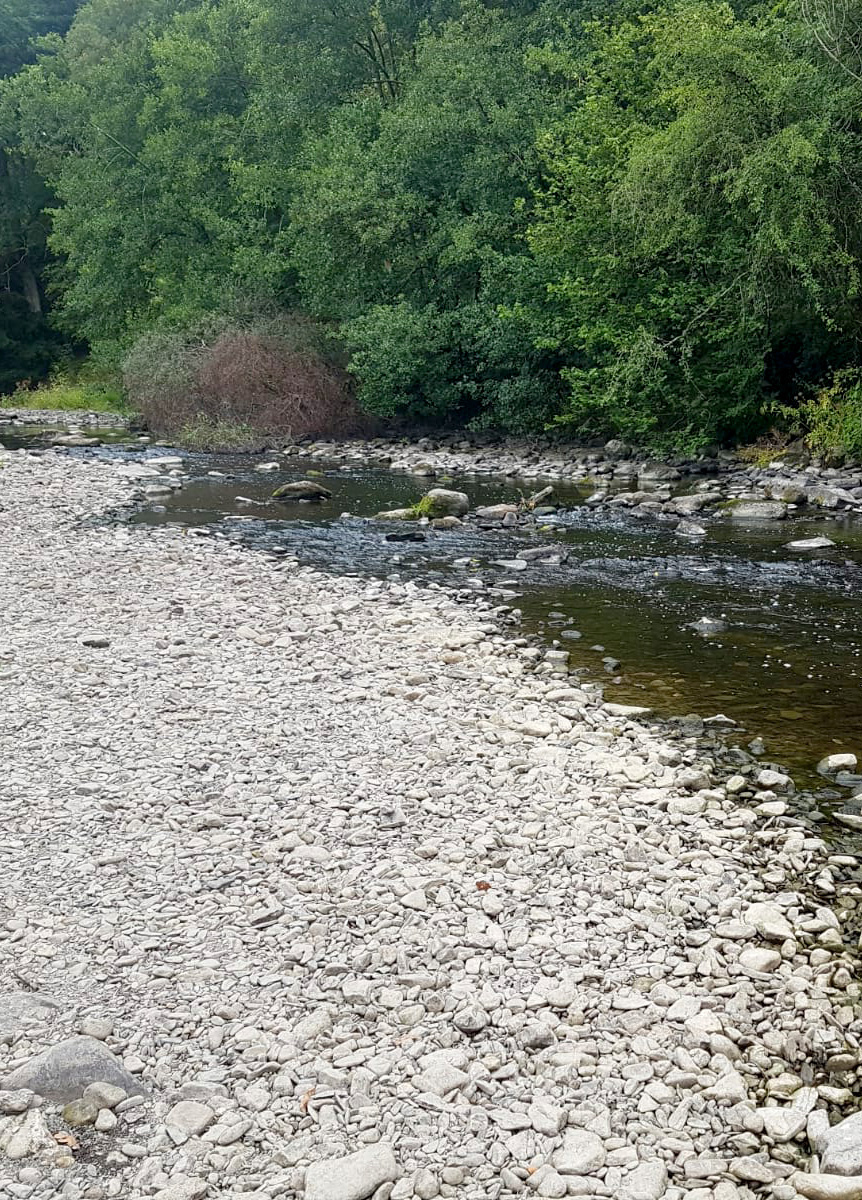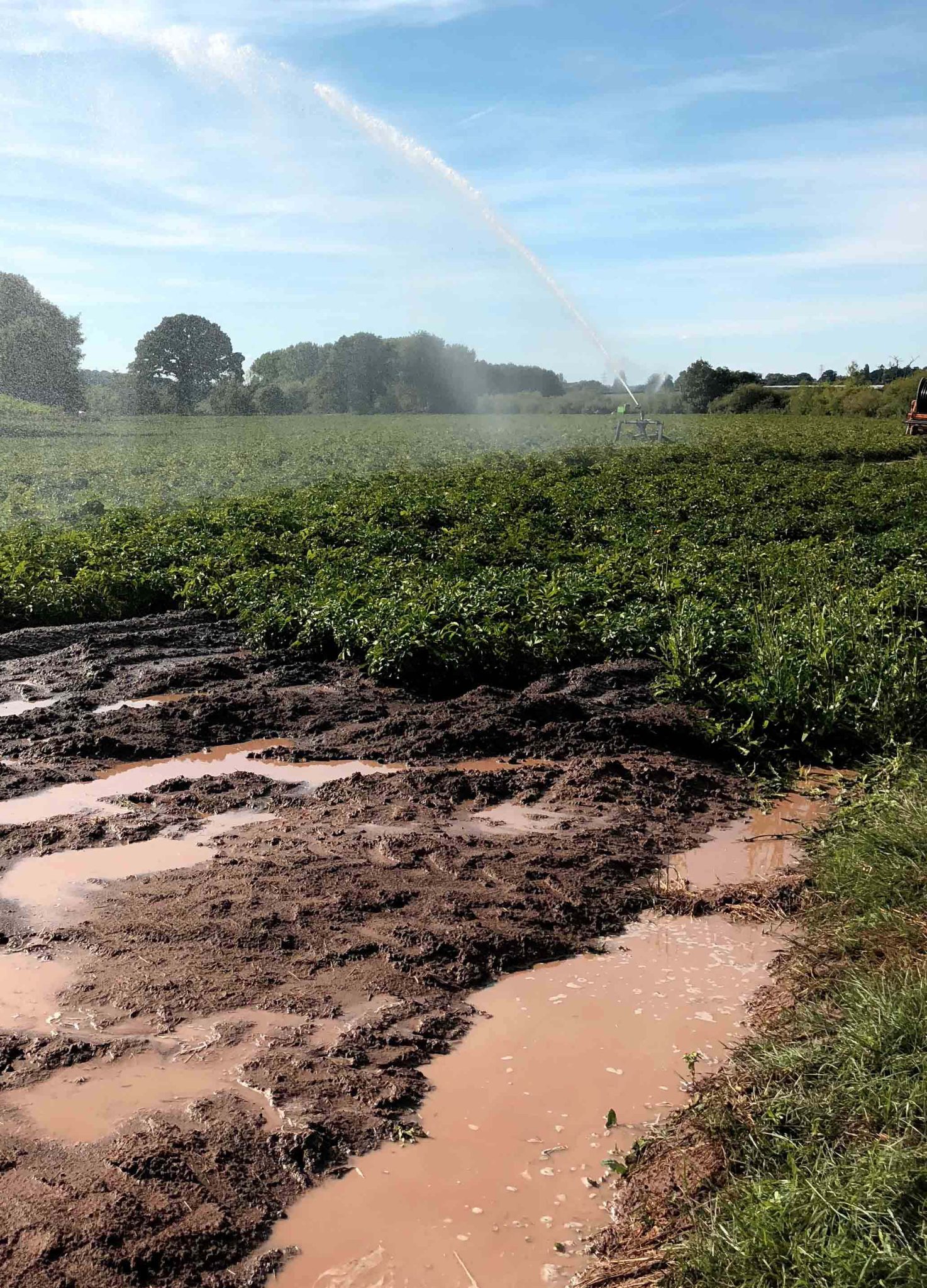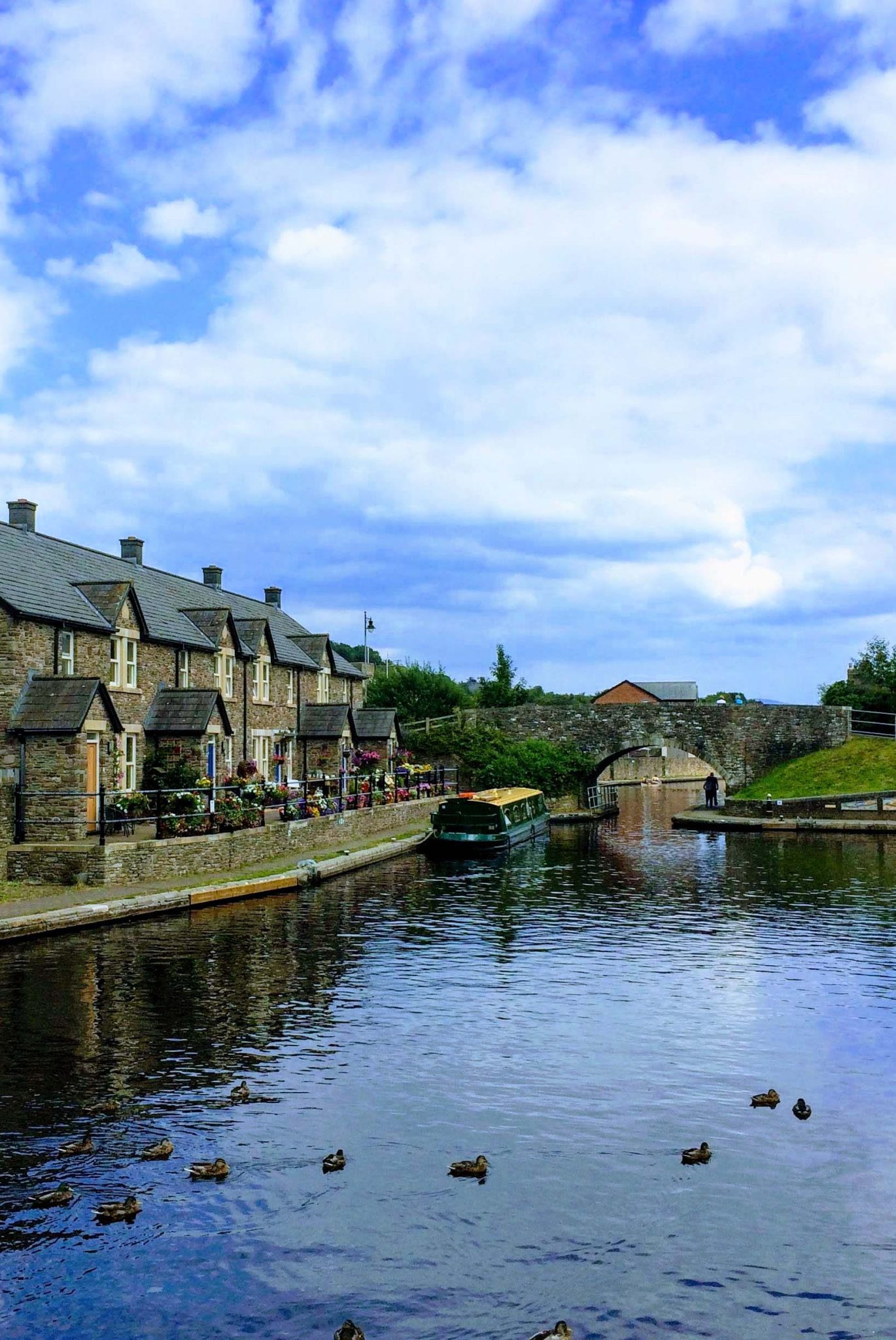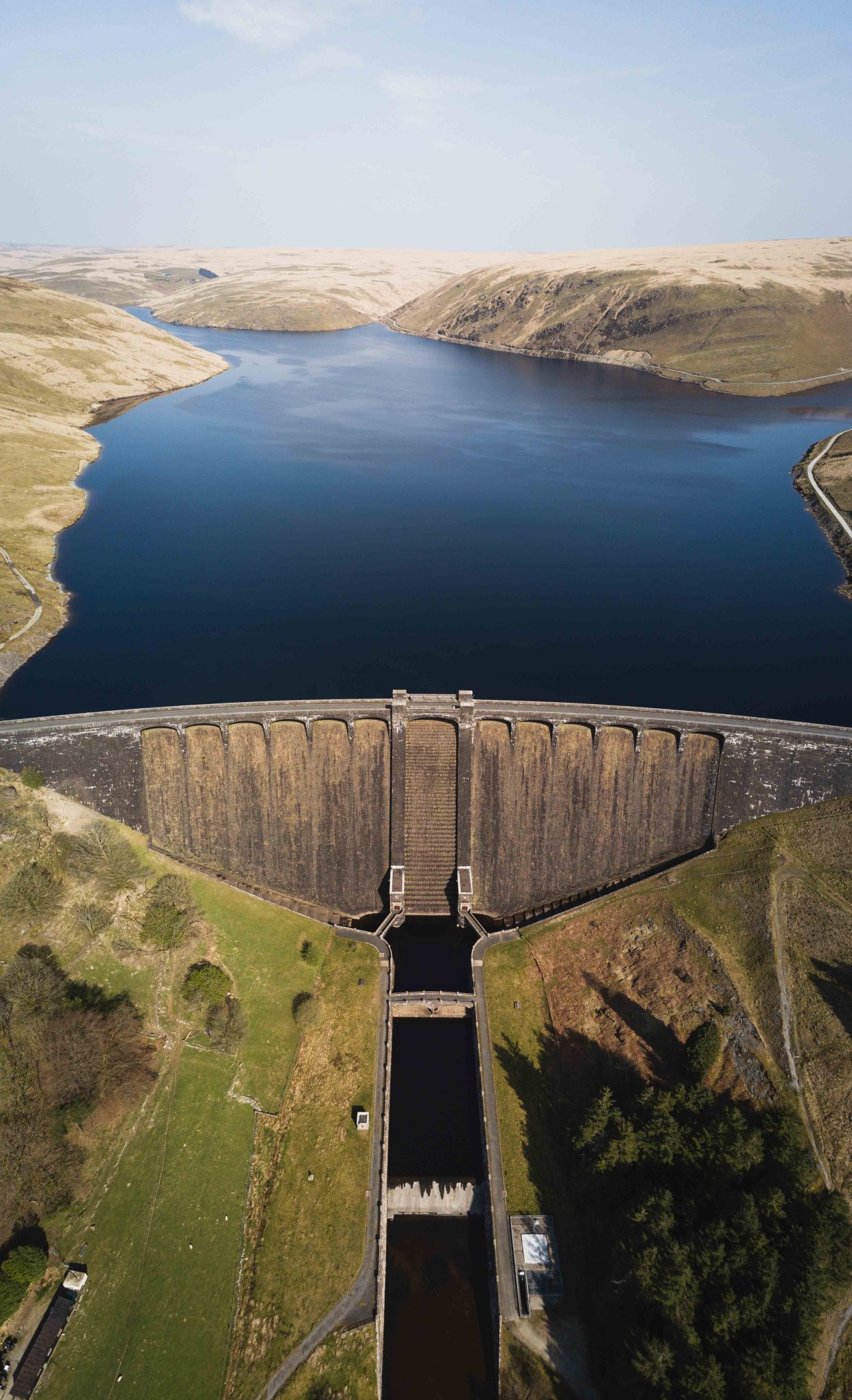While water resources are apparently robust, some rivers in Wales are lower than this time last year followign the second driest May on record.
Is it time for another “review of consents” for abstraction from Welsh rivers?
Afonydd Cymru has recently objected to an appeal by Canal & Rivers Trust to delay implementation of a reduction in their abstraction from the river Usk for the Brecon and Monmouthshire canal.
In the case of the Usk and Wye, it was shown that abstraction licences could be modified to benefit Welsh rivers without any impact on meeting the human demand for water.
Monday 26th June, 2023
This year has begun to feel a lot like last, a year in which Wales received only 65% of the long-term average of rainfall between March and September. This week, Natural Resources Wales has announced that Wales had moved from “normal” to “prolonged dry weather”, following the second driest May for the past 25 years.
Last month, Julie James MS, Minister for Climate Change, issued a statement asking everyone in Wales to be conscious of the water they use. Despite hosepipe bans gathering momentum in England and reports of fish perishing due to lack of oxygen in English canals and rivers, Welsh water companies currently seem confident that water supplies are robust in Wales.
However, a request to use water efficiently is about more than conserving stocks in a reservoir. River levels across Wales are continuing to fall and some rivers are already lower than last year. Our freshwater habitats are affected as the impacts of poor water quality worsen the more levels drop. Temperatures over 20 degrees have already been recorded on the Wye this year ““ anything above 24 degrees is considered critical for salmon.
On 15 June, Natural Resources Wales issued calls for anglers to cease fishing if the high temperatures continued. This is in addition to a mandatory catch and release scheme across Wales which requires all salmon to be returned, something which doesn’t exist in England.Â
Following the second driest may on record, Wales’s status has moved from “normal” to “prolonged dry weather.”
Our rivers and their occupants need flow so each and every one of us has a responsibility to think about what actions we can take to help. In 2008, Natural Resources Wales (EA Wales at the time) embarked on a process to review every abstraction in Wales to ensure it was sustainable and the flow in rivers did not compromise the protection of habitats and species. This was called the “Review of Consents.”
It resulted in some major reductions in all permitted abstraction at the time but the question now, of course, is whether our climate now warrants another look? Whilst in England water companies have been provided with specific environmental targets, Natural Resources Wales have not proposed any further specific reductions on abstractors in Wales so far. And, we must also consider the volume of unpermitted water taken from our rivers at a time when they are struggling the most anyway.Â
 In 2008, the Wye and Usk Foundation challenged the licences on the Rivers Wye and Usk. Whilst the abstraction regime met the minimum standards for what was deemed necessary under legislation at the time, we felt it could be improved for the rivers but with no compromises to water supply.Â
We must also consider the volume of unpermitted water taken from our rivers at a time when they need it the most.Â
A collaborative stakeholder group of Wye and Usk Foundation, Natural Resources Wales, Dwr Cymru Welsh Water, Severn Trent and the Canal & Rivers Trust called “UWAG” (the Usk and Wye Abstraction Group) was formed. Together, the group worked relentlessly to develop licence controls that not only met a minimum ecological flow in the river but also supported spate releases to help the migration of fish such as salmon and shad. This was ground-breaking and unique for licences in the UK.Â
Those licence proposals needed investment to enable the releases and new legislation to come into effect but even still, it took longer than we hoped. In fact, Afonydd Cymru has recently objected to an appeal by Canal & Rivers Trust for a further delay on licence reductions on their abstraction, which support the Brecon & Monmouthshire Canal, coming into effect on the river Usk (link). In every aspect, the Usk has declined further over the last 15 years. This is not a time for further delay.
The question, of course, is what we learnt from the UWAG process? Certainly that abstraction licences could be modified to benefit not only Welsh rivers but specifically target species and with no impact to meeting the human demand for water. We also learnt what more could be achieved from working collaboratively.
The health of the river Usk has declined over the last 15 years, this is no time to delay measures that help protect it.
Our water companies, Welsh Water and Hafren Dyfrdwy, have recently published draft long-term water resource plans which indicate, even allowing for climate change, that there are sufficient water resources in Wales for the next 25 years. However, this is dependent on effective management of water demand through reducing leakage and improving customers’ water efficiency. Both are absolutely critical for our rivers and the species they support.
So why then have abstraction licences only been considered for two rivers in Wales? Many other rivers are impounded but the only two that have potential regulation releases built into reservoir permits (extra water to enhance and protect flows from abstraction) are the Dee and Twyi. Some of those reservoirs contain a volume of water known as a “waterbank” or a “freshet” release specifically to support fish.
In October 2022, the Welsh Dee Trust also published a report on the impact of an unnatural flow regime on the Dee. It put forward proposals for modifying releases from the catchment’s reservoirs on the Dee to help salmon. These are managed by Natural Resources Wales, not Welsh Water, but despite many attempts, Welsh Dee Trust have still received no response from the environmental regulator on the proposals in their report. This must be rectified and the trust’s proposals must be considered alongside the evidence gathered as part of the River Dee LIFE project.
Water customers in Wales must also reduce usage if water companies are to abstract less from Welsh rivers.
Finally, we must not forget that the water abstracted by water companies from our rivers is to supply water to our homes, for each and every one of us to use. Therefore, we must control our usage if they are to control their abstraction.
Our rivers need protecting much more than the current focus on water quality. In May 2023, Natural Resources Wales warned that wild salmon could be extinct within the next two decades. We need to protect our riparian buffers, to provide shading and areas of lower, cooler temperatures by the planting of native trees and we need to drive forward every opportunity in policy-making to deliver not just the minimum legal requirement but the very best outcomes for our rivers. Achieving nature recovery and delivering climate resilience will depend on that.
Diolch yn fawr
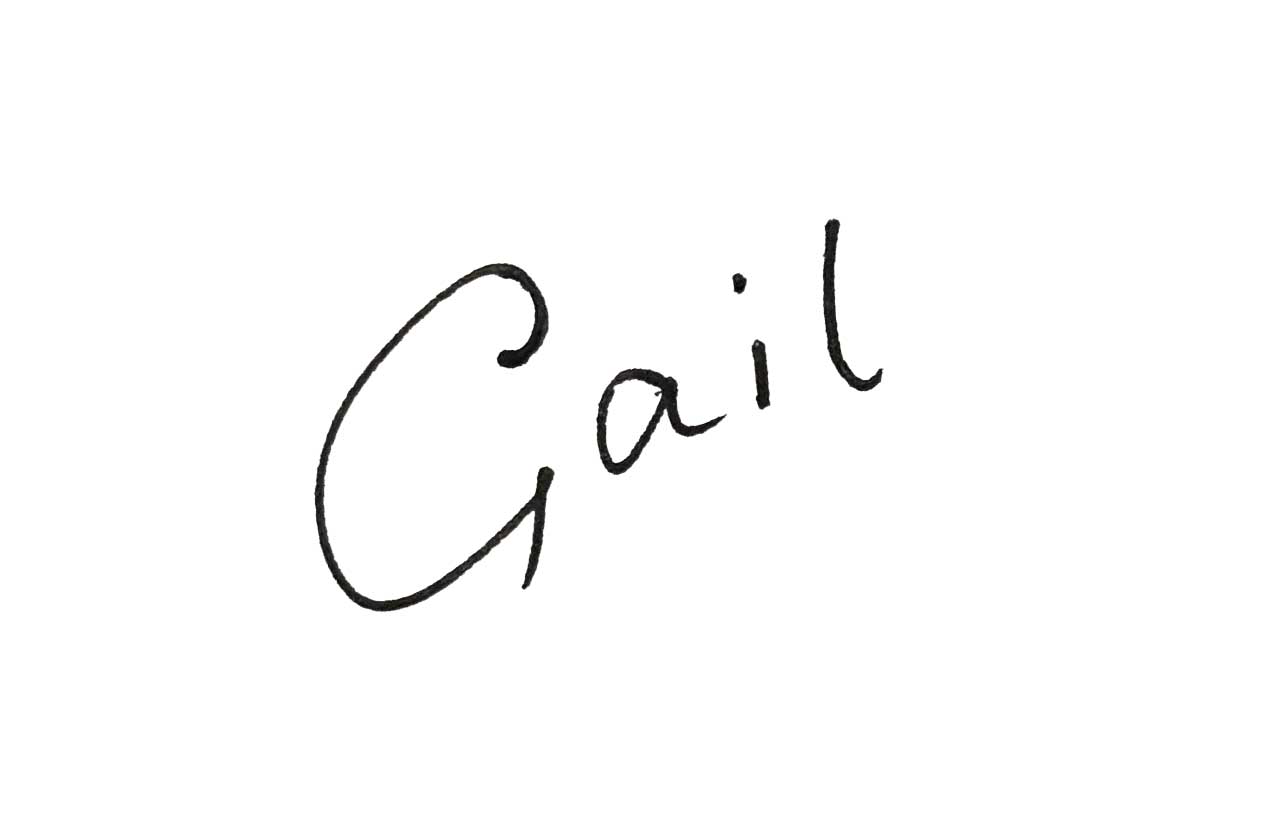
More Information:
Business Wales – “Minister for Climate Change asks Wales to be ‘water aware’ as Drought Liaison Group prepares for summer.” 24 May 2023.
 Dwr Cymru Welsh Water “Draft Water Resources Management Plan 2024.”
Natural Resources Wales – “Life Dee River.”
